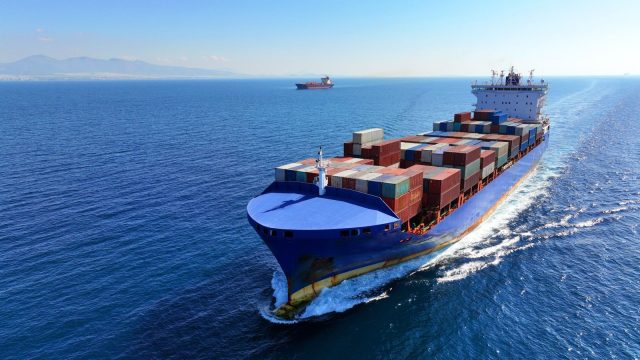
In a Europe shaken by geopolitical and industrial crises, the Mediterranean and Europe’s seas have returned to the center of political debate, thanks to the conservative vision of development, security, and growth. This was the key message from the panel “The Mediterranean and the Three Seas”, held on Friday, July 11, in Naples, during the European Conservatives Conference.
Speakers included former Polish Prime Minister and current President of the European Conservatives Mateusz Morawiecki, Italian Minister Nello Musumeci, MEP Alberto Gambino, ALIS representative Marcello Di Caterina, and Spanish MEP Nora Núñez Cunca Garcia. The focus? The sea as an economic, geopolitical, and cultural frontier. A resource to be defended and enhanced with pragmatism and without ideological naivety.
Morawiecki: “The sea is the axis of the new global order”
Opening the panel, Mateusz Morawiecki emphasized the central role of the Blue Economy in a rapidly changing geopolitical context: “The world is being reshaped: new trade routes, protectionist policies, and a shrinking Chinese influence. Within this, the Three Seas Initiative—from the Baltic to the Black Sea and the Adriatic—takes on strategic importance.” Morawiecki proposed an economic corridor linking India, the Middle East, and Europe (IMEC), with Trieste as a key hub connecting Italy to Central and Northern Europe. “We must invest in north-south infrastructure. Europe was built along the east-west axis, but today the Mediterranean can become the economic backbone of the continent.” He also offered strong criticism of Europe’s industrial policy: “We have used EU funds to finance Chinese industries. That is a grave mistake. We need an industrial policy based on common sense.”
Musumeci: “Italy must rediscover its maritime vocation. The sea is not just romanticism”
Minister for Maritime Policies Nello Musumeci brought a clear and pragmatic voice: “The Mediterranean has been forgotten by the EU, which focused more on the Baltic and land-based economies. Yet, the sea economy today is worth €180 billion, with 1 million workers and 240,000 businesses.”
He presented Italy’s new Underwater Law, which aims to sustainably regulate the seabed’s use and unlock its economic potential—from rare earths to marine geology—while respecting civil and environmental safety:
“The sea remains an unknown universe. To protect it, we must first know it. And realism, not radical environmentalism, must guide us.” Musumeci also issued a cultural challenge:“64% of Italians don’t view Italy as a maritime country. The sea is only seen as leisure from May to September. But the sea is effort, labor, and enterprise. We need a cultural revolution, starting with maritime education in primary schools.”
Di Caterina: “Training and digitalization: this is the Blue Economy that creates real jobs”
Marcello Di Caterina, Vice President of ALIS (Sustainable Intermodal Logistics Association), shifted focus to employment and training: “There is a massive gap between supply and demand in the maritime job market. Our youth are unaware of the opportunities. Yet a first-time crew member can earn €2,700 per month.” He explained how ALIS, in partnership with vocational institutes and universities, is working to make these careers appealing to southern youth: “Sustainability must be social and economic, not just environmental. We need less red tape and more incentives.”
On infrastructure, Di Caterina stressed the importance of port digitalization:“Italy accounts for 63% of maritime truck traffic in Europe. That’s a competitive advantage we must defend against short-sighted policies like the EU ETS, which risks penalizing Italian shipping and driving up consumer costs.”
Gambino: “Without young people, the sea has no future. Europe must invest”
Alberto Gambino, MEP, emphasized Italy’s strategic role:
“With 8,000 km of coastline, Italy plays a key role in Europe’s security and development. But we need a common strategy that respects each member state’s specificities.” He praised Giorgia Meloni’s government for prioritizing maritime infrastructure in EU spending: “We secured the right to use EU defense funds for dual-use port infrastructure, both civil and military.” Gambino called for reform of rigid EU maritime regulations: “Without changes, we risk losing ground to North African and Asian ports. Italian ports like Gioia Tauro must be defended and strengthened.”
Núñez Garcia: “Without fishermen, without youth, Europe’s sea will die”
From the European Parliament, Spanish MEP Nora Núñez Garcia spoke on behalf of traditional fishermen:
“Blue Economy is about work, culture, and identity. But ideological environmentalism and overregulation are destroying generational renewal.”
She proposed a European Plan for Blue Generational Renewal, including tax incentives, microcredits, and practical training: “Rules must reflect local realities. If the only criterion is environmental, we’ll have sustainable ports—but no boats. Protecting the sea also means protecting those who live from it.”
A conservative agenda for the sea
The panel delivered a unified message: the sea is not a burden managed through ideological dogmas, but a concrete engine for development, identity, and freedom. What’s needed are infrastructure, training, investment, flexible rules, and a sea culture starting in schools and translating into real opportunities for youth.
The conservative approach—pragmatic and non-ideological—envisions a Europe that is “continental by culture, but maritime by vocation.” The Mediterranean must no longer be Europe’s periphery, but the heart of its renewal.



 Subscribe
Subscribe